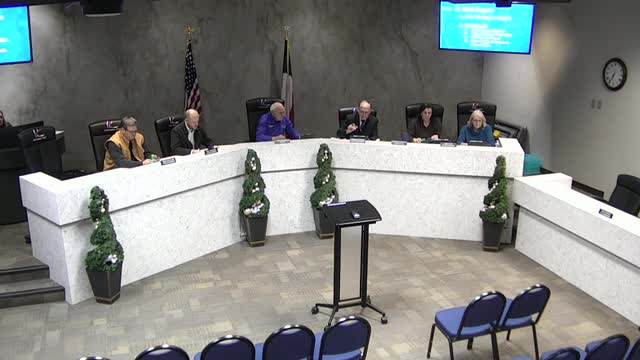Universal City council to allocate remaining ARPA balance toward mental health officers; clarifies training and duties
Get AI-powered insights, summaries, and transcripts
Subscribe
Summary
Council heard an ARPA report showing roughly $5.18 million received and staff proposed allocating about $140,000 of the remaining balance to FY2026 to fund mental health officers. Council and staff discussed training, duties and deployment of the positions.
Universal City Council on Jan. 7 reviewed an annual American Rescue Plan Act (ARPA) report and agreed by consensus to allocate the remaining ARPA balance toward funding for the city's mental health officers.
Finance Director Christine Green told the council the city received $5,181,363 in ARPA funds. She said funds already applied include water and sewer infrastructure (about $400,000), cybersecurity (about $759,000), $700,000 for mental health officers and $800,000 for a fire truck. Green said the remaining balance is approximately $173,000 and staff proposed moving about $140,000 of that, plus roughly $33,000 in interest, into the fiscal year 2026 budget to continue funding the city's mental health officer positions.
The council did not take a roll-call vote on the transfer; staff requested council direction and members indicated consent. Mayor Catan Patrick (as recorded in the transcript) and several council members voiced support for the proposed allocation during the staff presentation.
Council members and department leadership pressed for clearer operational details. A presenter identified as "Chief" explained that the city has multiple designated mental health officers: at least two are designated positions, one assigned to the police department and others cross-trained within police and fire operations. The chief said the city currently has four or five officers who have completed mental-health-specific training and certification, and emphasized the goal of having at least one certified mental health officer per shift.
During discussion the chief clarified training and law-enforcement duties: mental health officers must be licensed peace officers and complete additional crisis intervention training beyond the routine continuing-education requirements for peace officers. The chief described the course as a 40-hour crisis-intervention training that supplements Texas Commission on Law Enforcement licensing and noted that some duties (for example, initiating a mental-health detention or commitment action) must be performed by peace officers rather than EMS personnel.
Council members asked how the positions are scheduled and whether officers remain available for regular police or fire duties when not responding to mental-health calls. Staff said the mental health-designated personnel are cross-trained and perform other department duties (for example, fire-insp ection work) when not responding to mental-health incidents.
Director Green and other staff noted public feedback praising the program: one council member said three unsolicited residents praised the city's mental-health response in recent days.
What happens next: staff will move forward with the budget adjustment to carry the remaining ARPA balance into the FY2026 mental-health officer line as directed by council consensus, and the city will continue staffing and training to maintain coverage across shifts.
